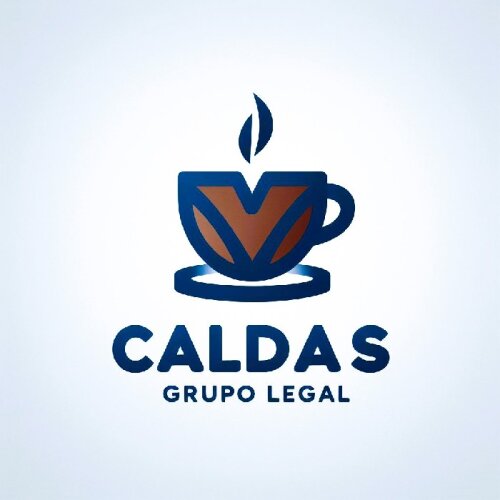Best Native People Lawyers in Manizales
Share your needs with us, get contacted by law firms.
Free. Takes 2 min.
List of the best lawyers in Manizales, Colombia
About Native People Law in Manizales, Colombia
Manizales is a city located in the Caldas department of Colombia, a region that includes various Indigenous (Native) communities with rich cultural and historic backgrounds. The Colombian Constitution of 1991 recognizes and protects the rights of Indigenous peoples, granting them autonomy over their territories and culture. In Manizales, Native People have contributed greatly to the identity of the area, but often face challenges related to land rights, cultural preservation, and access to public services. Laws exist at the national and local levels to safeguard Indigenous traditions, lands, and participation in decision-making processes, but navigating these can require specialized legal knowledge.
Why You May Need a Lawyer
Native People in Manizales may require legal assistance for several reasons. Common situations include disputes over land boundaries, preventing encroachments on Indigenous territories, advocating for collective land titles, or resolving issues related to displacement. Legal help is also sought when there are violations of cultural and educational rights, or when Indigenous groups face challenges accessing healthcare, education, or governmental programs. Lawyers can assist with making claims before authorities, defending rights in court, interpreting complex regulations, and negotiating with third parties or governmental agencies.
Local Laws Overview
The key legal framework for Native People in Manizales is based on the Colombian Constitution, particularly Articles 7, 63, 246, and 330, which support Indigenous autonomy and land rights. There are also several statutory laws, such as Law 21 of 1991 (ILO Convention 169), guaranteeing consultation and participation, and Law 70 of 1993, which addresses land claims and collective property. Locally, Manizales must respect these protections through its municipal policies, and there are dedicated governmental offices to liaise with Native communities. Issues like zoning, education, and natural resource management all intersect with Indigenous rights in Manizales, making legal knowledge essential for effective advocacy.
Frequently Asked Questions
Who are the main Native groups present in Manizales?
The main Indigenous groups in the Manizales region include the Embera Chamí and other communities from the larger Embera and Páez (Nasa) peoples, although population sizes may vary and some have migratory histories due to displacement.
What legal rights do Native People have in Manizales?
Native People have recognized rights to cultural autonomy, use and management of their traditional lands, participation in governmental decisions affecting them, and special legal protections under the Colombian Constitution and related laws.
How can Native People claim land rights in Manizales?
Communities can start a process with the Colombian Land Restitution Unit or the National Land Agency to seek recognition of collective property titles or to defend against intrusion onto ancestral lands, often with assistance from specialized lawyers or organizations.
Are there specific protections for Native cultures and languages?
Yes, Colombian law mandates protection for Indigenous languages, cultural practices, and educational systems. These rights can be enforced through legal mechanisms if violated by public or private parties.
What should I do if my community faces displacement or threats to our territory?
Immediate legal assistance is critical. You can file a complaint with authorities, seek a legal injunction, or request protection from governmental entities and human rights organizations familiar with Indigenous issues.
Can Native People access health care and education in their own language and culture?
Yes. The law requires government agencies to provide intercultural health and educational services that respect and incorporate Indigenous languages and traditions.
What is prior consultation and when is it required?
Prior consultation is a legal process that mandates authorities and companies to consult Indigenous communities before undertaking any project that may affect their territories or rights. This is enshrined in national law and ILO Convention 169.
Are there local government offices in Manizales that help Native People?
Yes. The Mayor's Office and specialized divisions, in coordination with the Caldas Department, have offices dedicated to Indigenous affairs which can help address legal and administrative matters.
How do I report violations of Indigenous rights?
Reports can be made to the local Personería (Ombudsman's office), the Defensoría del Pueblo (National Ombudsman), and human rights organizations. Having documentation and legal representation strengthens your claim.
Is legal assistance free for Native People in Manizales?
Some legal services are free or low cost, particularly through public defenders, university legal clinics, and non-governmental organizations that specialize in Indigenous rights.
Additional Resources
- Personería Municipal de Manizales: Offers guidance and legal support for vulnerable populations, including Native People. - Unidad de Restitución de Tierras: Handles land claims and restitution for displaced communities. - Defensoría del Pueblo: National ombudsman for the protection and promotion of human rights. - Organización Nacional Indígena de Colombia (ONIC): Advocacy and representation of Indigenous Peoples across Colombia. - University Law Clinics: Many universities in Colombia provide free legal advice and representation, often focusing on social justice and Indigenous rights.
Next Steps
If you or your community in Manizales are facing legal challenges related to Indigenous rights, there are several steps you can take. Begin by clearly documenting your situation, including relevant facts, dates, and supporting documents. Reach out to a local legal aid provider, governmental body, or Indigenous organization for initial guidance. Consider consulting a lawyer who specializes in Indigenous or human rights law for a personalized assessment of your case. Stay informed about your rights and ongoing changes in local and national laws. If necessary, attend community forums or meetings to build collective support, and do not hesitate to report violations to the appropriate authorities. Acting quickly and seeking expert assistance increases the likelihood of a favorable legal outcome.
Lawzana helps you find the best lawyers and law firms in Manizales through a curated and pre-screened list of qualified legal professionals. Our platform offers rankings and detailed profiles of attorneys and law firms, allowing you to compare based on practice areas, including Native People, experience, and client feedback.
Each profile includes a description of the firm's areas of practice, client reviews, team members and partners, year of establishment, spoken languages, office locations, contact information, social media presence, and any published articles or resources. Most firms on our platform speak English and are experienced in both local and international legal matters.
Get a quote from top-rated law firms in Manizales, Colombia — quickly, securely, and without unnecessary hassle.
Disclaimer:
The information provided on this page is for general informational purposes only and does not constitute legal advice. While we strive to ensure the accuracy and relevance of the content, legal information may change over time, and interpretations of the law can vary. You should always consult with a qualified legal professional for advice specific to your situation.
We disclaim all liability for actions taken or not taken based on the content of this page. If you believe any information is incorrect or outdated, please contact us, and we will review and update it where appropriate.









